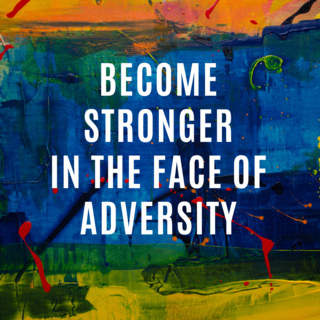Resilience
The Antifragile Mindset
Why resilience isn't enough in the face of a global pandemic.
Posted March 16, 2020 Reviewed by Ekua Hagan

If COVID-19 hadn’t canceled travel around the world, I’d be headed to London to speak about a topic that has become increasingly timely—antifragility—a powerful concept introduced by author Nassim Nicolas Taleb in his book, Antifragile: Things That Gain From Disorder1. In a nutshell, antifragility means to get stronger in the face of stressors. Taleb explains:
“Some things benefit from shocks; they thrive and grow when exposed to volatility, randomness, disorder, and stressors and love adventure, risk, and uncertainty. Yet, in spite of the ubiquity of the phenomenon, there is no word for the exact opposite of fragile. Let us call it antifragile. Antifragility is beyond resilience or robustness. The resilient resists shocks and stays the same; the antifragile gets better.”
Right now, the pandemic is wreaking havoc on our systems—collective systems and personal routines are undergoing major shocks. Many of us are experiencing personal and collective anxiety, as well as an increase in stress, depression, feelings of hopelessness, panic, and grief. These feelings are normal responses to trauma of this magnitude. But it is important to recognize that we don't have to give in to such feelings. We have a choice. At this crucial moment of systemic stress, we can choose to develop an antifragile mindset and grow stronger.

Developing an antifragile mindset doesn't mean denying feelings of anxiety and stress, but instead, training ourselves to summon the opposite responses. We can combat stress with relaxation; hopelessness with hopefulness; anxiety and panic with mindfulness meditation. If we are in danger of losing a loved one, or we have already suffered such a loss, we can give ourselves permission to grieve – we can be patient and kind to ourselves. We can remind ourselves that crying is a healthy response to loss.
The virus can do many things, but it cannot take away our humanity, not unless we allow it to. By training ourselves to develop an antifragile mindset, we are choosing to be leaders, to be a light for those in a dark place. In this time of social distancing, we can actively engage in digital altruism by sharing positive content on social media, such as this uplifting video in which Italians, quarantined in their homes, sing from their windows into an empty street.

These Italians are demonstrating an antifragile psychological response. As one voice joins another, the song and the people singing—grow stronger. Their song rises above social isolation, not only lifting the spirits of people nearby but those of people around the world. This act of singing in a time of crisis is an antifragile response. Such moments give meaning to our lives.
The antifragile mindset is a heroic mindset. It is found all around us. It is demonstrated by our first responders, medical professionals, public health corp., and many thousands of volunteers around the world who frequently go into difficult and dangerous situations. These individuals embody the antifragile mindset. Rather than focusing our attention on the constant stream of bad news, we can choose to direct our attention toward the innumerable acts of collaborative heroism taking place all around us. The global pandemic is an opportunity for each of us to challenge ourselves in new ways. By using it as an opportunity to develop an antifragile mindset, we will be better prepared to face whatever challenges come next.
References
Taleb, N.N. (2012). Antifragile: Things that gain from disorder. New York: Random House.


